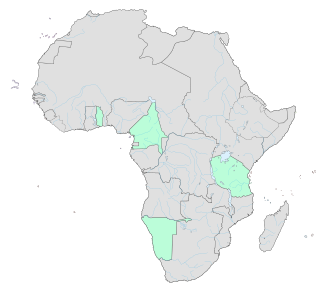 W
WKaiser Wilhelm II abdicated as German Emperor and King of Prussia in November 1918. The abdication was announced on 9 November by Prince Maximilian of Baden and was formally enacted by Wilhelm's written statement on 28 November, made while in exile in Amerongen, the Netherlands. This ended the House of Hohenzollern's 500-year rule over Prussia and its predecessor state, Brandenburg. Wilhelm ruled Germany and Prussia from 15 June 1888 through 9 November 1918, when he went into exile. Following the abdication statement and German Revolution of 1918–19, the German nobility as a legally defined class was abolished. On promulgation of the Weimar Constitution on 11 August 1919, all Germans were declared equal before the law. Ruling princes of the constituent states of Germany also had to give up their monarchical titles and domains, of which there were 22. Of these princely heads of state, four held the title of king (König), six held the title of grand duke (Großherzog), five held the title of duke (Herzog), and seven held the title prince.
 W
WThe Anti-Socialist Laws or Socialist Laws were a series of acts, the first of which was passed on 19 October 1878 by the Reichstag lasting until 31 March 1881 and extended four times.
 W
WThe Berlin movement was an anti-Semitic intellectual and political movement in the German Empire in the 1880s. The movement was a collection of unassociated individuals and organizations.
 W
WThe Bundesrat of the German Empire was, at least in theory, the highest authority of the Empire. It existed from 1871 to 1918 and succeeded the same body of the North German Confederation. Until the 1902 spelling reform, its name was spelled Bundesrath.
 W
WThe German Centre Party is a lay Catholic political party in Germany, primarily influential during the Kaiserreich and the Weimar Republic. In English it is often called the Catholic Centre Party. Formed in 1870, it successfully battled the Kulturkampf waged by Chancellor Otto von Bismarck against the Catholic Church. It soon won a quarter of the seats in the Reichstag, and its middle position on most issues allowed it to play a decisive role in the formation of majorities.
 W
WThe German Emperor's Tributary Monument , also known as the Friendship, Philanthropy, Humanity, or Hakuai Monument, is a stele in the Harimizu area of Miyakojima, Okinawa.
 W
WThe May 1912 Reichstag debate on interracial marriage was the most significant and explicit discussion of (colonial) racial biopolitics on a national level in the German Empire before World War I. It served as a preparation for the legal regulation of such marriages in the German colonial empire and of the status of children from such unions. It is evidence of the racial-political ideas of German political parties at the time and also of the precursors of the more aggressive racism of the interwar period. The debate can be seen as part of an international tendency at the time to strengthen the barriers between the colonisers and the colonised.
 W
WThe Kissingen Dictation is a diplomatic file created in Bad Kissingen by the German Chancellor Otto von Bismarck during the summer of 1877. It contains the principles of his foreign policy.
 W
WThe Reichstag was the Parliament of Germany from 1871 to 1918. Legislation was shared between the Reichstag and the Bundesrat, which was the Imperial Council of the reigning princes of the German States.
 W
WThe Zabern or Saverne Affair was a crisis of domestic policy which occurred in the German Empire at the end of 1913. It was caused by political unrest in Zabern in Alsace-Lorraine, where two battalions of the Prussian 99th Infantry Regiment were garrisoned, after a second-lieutenant insulted the Alsatian population. The military reacted to the protests with arbitrary illegal acts. These infringements led to a debate in the German Reichstag about the militaristic structures of German society, as well as the position of the leadership of the Empire in relationship to Kaiser Wilhelm II. The affair not only put a severe strain on the relationship between the imperial state of Alsace-Lorraine and the remainder of the German Empire, but also led to a considerable loss of prestige of the Kaiser.